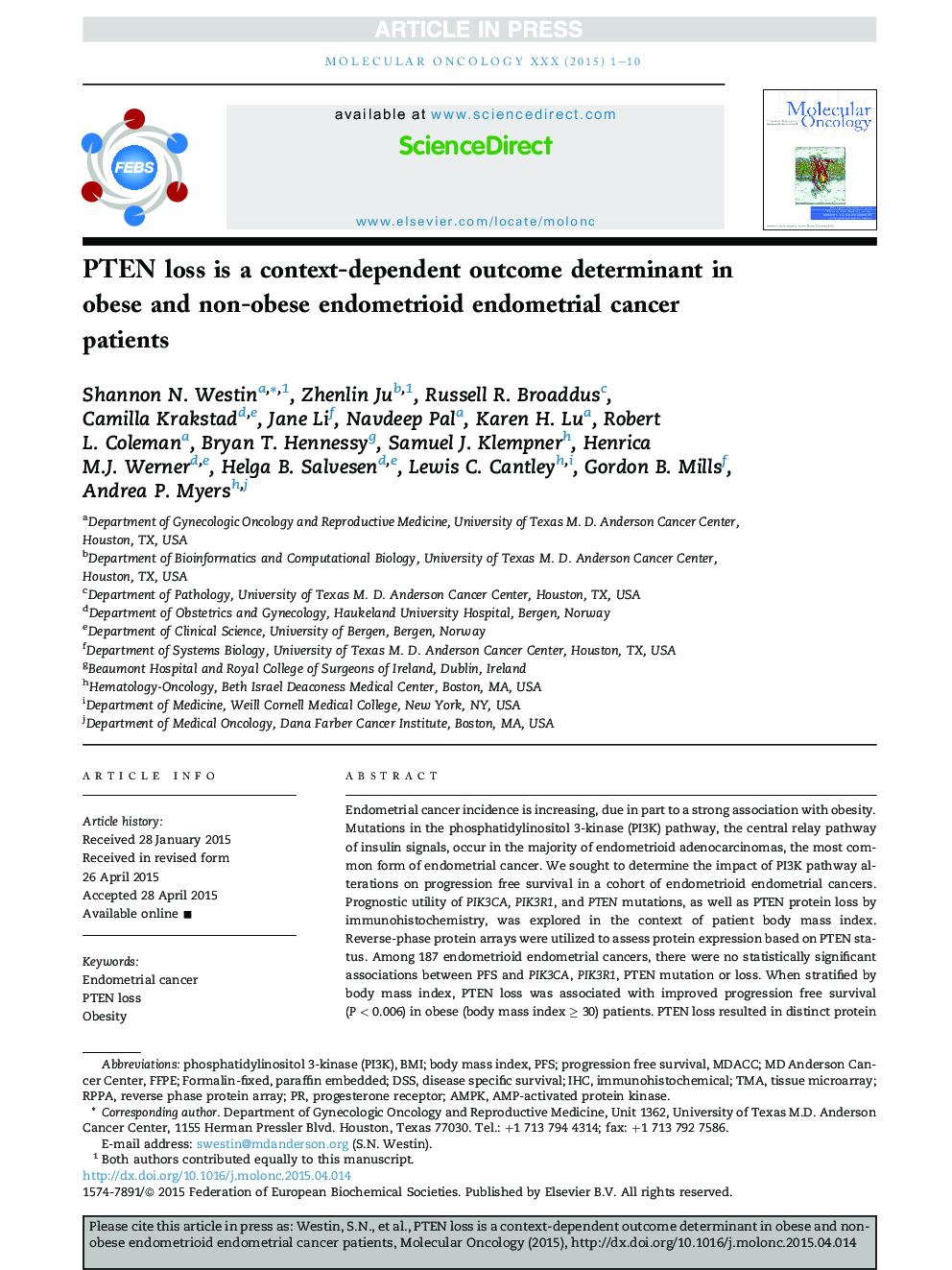| Article ID | Journal | Published Year | Pages | File Type |
|---|---|---|---|---|
| 10914710 | Molecular Oncology | 2015 | 10 Pages |
Abstract
Endometrial cancer incidence is increasing, due in part to a strong association with obesity. Mutations in the phosphatidylinositol 3-kinase (PI3K) pathway, the central relay pathway of insulin signals, occur in the majority of endometrioid adenocarcinomas, the most common form of endometrial cancer. We sought to determine the impact of PI3K pathway alterations on progression free survival in a cohort of endometrioid endometrial cancers. Prognostic utility of PIK3CA, PIK3R1, and PTEN mutations, as well as PTEN protein loss by immunohistochemistry, was explored in the context of patient body mass index. Reverse-phase protein arrays were utilized to assess protein expression based on PTEN status. Among 187 endometrioid endometrial cancers, there were no statistically significant associations between PFS and PIK3CA, PIK3R1, PTEN mutation or loss. When stratified by body mass index, PTEN loss was associated with improved progression free survival (P < 0.006) in obese (body mass index â¥Â 30) patients. PTEN loss resulted in distinct protein changes: Canonical PI3K pathway activation was observed only in the non-obese population while decreased expression of β-CATENIN and phosphorylated FOXO3A was observed in obese patients. These data suggest the impact of PTEN loss on tumor biology and clinical outcomes must be interpreted in the context of body mass index, and provide a potential explanation for discrepant reports on the effect of PTEN status and obesity on prognosis in endometrial cancer. This reveals a clinically important interaction between metabolic state and tumor genetics that may unveil the biologic underpinning of obesity-related cancers and impact ongoing clinical trials with PI3K pathway inhibitors.
Keywords
MDACCMD Anderson Cancer CenterRPPAAMPKTMADSSAMP-activated protein kinaseFFPEPFsPI3K/Akt Pathwayreverse phase protein arrayIHCimmunohistochemicalSurvivalDisease specific survivalProgression free survivalEndometrial cancerbody mass indexBMIFormalin-fixedPhosphatidylinositol 3-kinase (PI3K)ObesityTissue microarrayProgesterone receptor
Related Topics
Life Sciences
Biochemistry, Genetics and Molecular Biology
Cancer Research
Authors
Shannon N. Westin, Zhenlin Ju, Russell R. Broaddus, Camilla Krakstad, Jane Li, Navdeep Pal, Karen H. Lu, Robert L. Coleman, Bryan T. Hennessy, Samuel J. Klempner, Henrica M.J. Werner, Helga B. Salvesen, Lewis C. Cantley, Gordon B. Mills, Andrea P. Myers,
